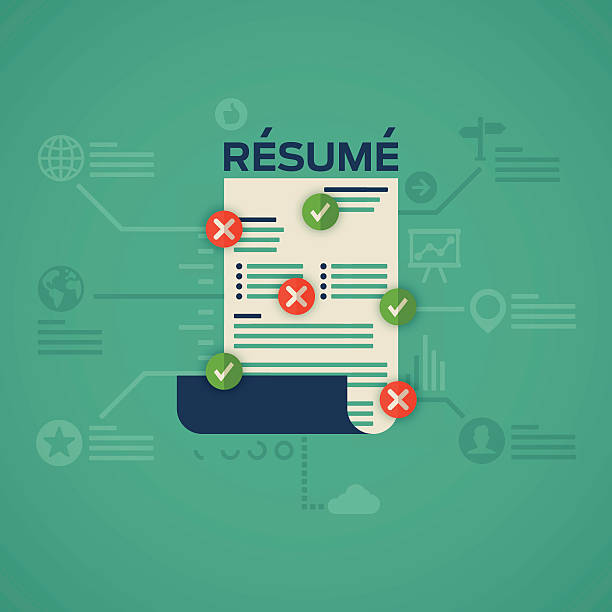Eight (8) Types of Library Jobs: Requirements and Pathways
Libraries are more than quiet places filled with books, they are centers of learning, community engagement, and information management. The field of library science has evolved significantly, now offering diverse career options beyond the traditional librarian role.
Today’s libraries require specialized skills to manage digital resources, curate unique collections, and create engaging programs for patrons of all ages. Whether in public, academic, corporate, or government settings, library jobs offer fulfilling career paths for those passionate about information access, preservation, and community service.
This guide provides an overview of eight distinct types of library jobs, exploring the specific responsibilities, requirements, and career pathways for each role. With insights into educational qualifications, skill sets, and advancement opportunities, this article is designed to help aspiring library professionals navigate their options in this dynamic field.
General Requirements for Library Jobs
Before diving into specific roles, it’s helpful to understand some general qualifications and skills that are commonly required across most library jobs:
- Educational Background: Many library roles require a Master’s in Library Science (MLS) or equivalent, though some entry-level positions accept a high school diploma or associate degree. Advanced roles, particularly in special collections or digital libraries, often require additional certifications or specializations.
- Technical Proficiency: As libraries increasingly incorporate digital media, familiarity with cataloging software, digital resource management, and information retrieval systems is essential. Skills in database management, software like Integrated Library Systems (ILS), and digital asset management are highly valued.
- Research and Information Literacy: Library professionals should possess strong research skills, including knowledge of cataloging systems like the Dewey Decimal and Library of Congress classifications. The ability to help patrons find reliable information is a key part of many library jobs.
- Communication and Customer Service: Since many library roles involve direct interaction with patrons, strong interpersonal skills and the ability to provide excellent customer service are essential. This is particularly important for positions that involve community engagement or youth services.
With these foundational skills and qualifications, library professionals can pursue a variety of specialized roles.
Top 8 Eight Library Jobs
1. Librarian
Librarians manage collections, assist patrons, and oversee the library’s daily operations. They may work in public, academic, corporate, or government libraries, adapting resources and programs to meet community needs.
- Educational Requirements: Typically, an MLS or equivalent degree is required, with some roles demanding specialized knowledge, such as a focus on archives or digital libraries.
- Skills and Responsibilities: Key responsibilities include organizing collections, conducting research, assisting patrons, and managing library staff. Librarians must be skilled in information retrieval, cataloging, and research.
- Pathways: Librarians may advance to senior librarian, library manager, or head librarian roles, with potential to specialize in areas like research support or youth services.
2. Library Assistant
Library assistants provide support with daily tasks, helping to maintain an organized and welcoming library environment. They assist patrons, shelve books, and help with cataloging and administrative duties.
- Educational Requirements: A high school diploma or equivalent is usually sufficient, with on-the-job training provided. Some positions may prefer candidates with postsecondary education.
- Skills and Responsibilities: Organizational skills, attention to detail, and basic computer literacy are essential. Library assistants help patrons locate resources, check out materials, and handle library records.
- Pathways: With experience and additional training, library assistants can move into roles such as library technician or pursue a degree to become a librarian.
3. Library Technician
Library technicians support the technical aspects of library operations, including cataloging, managing digital resources, and assisting librarians with research.
- Educational Requirements: An associate degree or certificate in library technology or a related field is commonly required. Training in cataloging and database management is beneficial.
- Skills and Responsibilities: Proficiency in cataloging software, research, and record management are key. Library technicians may also train new assistants and help librarians organize resources.
- Pathways: Technicians can progress to librarian positions with further education or specialize in areas such as digital collections or technical services.
4. Archivist
Archivists focus on preserving and managing collections of historical documents, records, and artifacts. They often work in academic institutions, museums, government agencies, or specialized libraries.
- Educational Requirements: A master’s degree in archival studies, history, or library science with an archival concentration is typically required. Certification from organizations like the Academy of Certified Archivists can be advantageous.
- Skills and Responsibilities: Archivists must be skilled in preservation, historical research, and data organization. They are responsible for acquiring, cataloging, and safeguarding collections.
- Pathways: Archivists can advance to senior roles, such as head of special collections or curator, with additional experience and certifications.
5. Digital Librarian
Digital librarians manage digital resources, including databases, e-books, and online journals. They ensure digital collections are accessible and help patrons navigate digital information systems.
- Educational Requirements: An MLS with a specialization in digital libraries or information technology is typically required. Technical certifications in database management or digital asset management are beneficial.
- Skills and Responsibilities: Digital literacy, proficiency in digital asset management software, and knowledge of database management are essential. Digital librarians often work with IT staff to ensure seamless access to digital resources.
- Pathways: With experience, digital librarians can move into digital library management or IT-focused roles within libraries.
6. Youth Services Librarian
Youth services librarians specialize in providing library services, resources, and programming for children and young adults. They foster literacy and learning in young patrons through tailored programs and resources.
- Educational Requirements: An MLS with a focus on youth or children’s services, or experience in education, is often required.
- Skills and Responsibilities: Communication, educational programming, and creativity are crucial. Youth services librarians organize events, curate age-appropriate materials, and support literacy development.
- Pathways: Career advancement can lead to senior positions within the youth services department or roles as head of children’s programming in larger libraries.
7. Acquisitions Librarian
Acquisitions librarians are responsible for selecting, ordering, and managing library materials. They negotiate with vendors, manage budgets, and ensure the library’s collection aligns with patrons’ needs.
- Educational Requirements: An MLS, with background knowledge in budgeting, purchasing, or business, is typically required.
- Skills and Responsibilities: Budget management, negotiation, and collection development skills are essential. Acquisitions librarians work closely with vendors and manage the logistics of adding new resources.
- Pathways: Acquisitions librarians can progress to head of acquisitions or other library management positions.
8. Special Collections Librarian
Special collections librarians manage unique collections, such as rare books, manuscripts, or artifacts. They often work in academic libraries or research institutions.
- Educational Requirements: An MLS with a specialization in rare collections, or additional training in preservation or archival studies, is commonly required.
- Skills and Responsibilities: Knowledge of preservation, special cataloging techniques, and historical research is essential. They ensure the security and preservation of valuable materials.
- Pathways: With experience, special collections librarians can become curators or department heads for special collections.
Career Pathways in Library Science
The field of library science offers numerous pathways for advancement and specialization. Library professionals can progress from entry-level roles to more specialized or management positions by gaining experience, pursuing further education, or obtaining certifications.
- From Assistant to Librarian: Entry-level assistants can advance to library technician or librarian roles by completing relevant education, such as an MLS.
- Specialization Opportunities: With experience, professionals can specialize in areas such as digital libraries, youth services, or acquisitions, allowing for focused expertise.
- Management and Senior Roles: Senior positions like head librarian or library director are attainable with years of experience and demonstrated leadership skills.
- Professional Certifications: Certifications from organizations such as the Academy of Certified Archivists or the American Library Association can enhance job prospects and facilitate advancement.
These pathways allow library professionals to build fulfilling careers in roles that suit their interests and skills.
Conclusion
Library careers are diverse and rewarding, offering roles that cater to various interests, from working with historical documents to engaging with digital resources. With the right qualifications, skills, and dedication, library professionals can pursue meaningful careers that support learning, preservation, and community engagement. Whether you’re interested in becoming a librarian, digital librarian, or youth services librarian, there’s a role for everyone in the evolving library landscape.
Frequently Asked Questions
Q: Do all library jobs require a Master’s in Library Science (MLS)?
A: No, not all library jobs require an MLS. Entry-level roles such as library assistant or technician may only require a high school diploma or associate degree, while specialized roles generally require an MLS.
Q: How can a library assistant advance to a librarian role?
A: Library assistants can advance to librarian positions by pursuing an MLS and gaining relevant experience. Many libraries support continuing education and professional development.
Q: What skills are essential for a digital librarian?
A: Digital librarians need skills in digital literacy, database management, and software for digital asset management, as they manage and curate digital resources.


